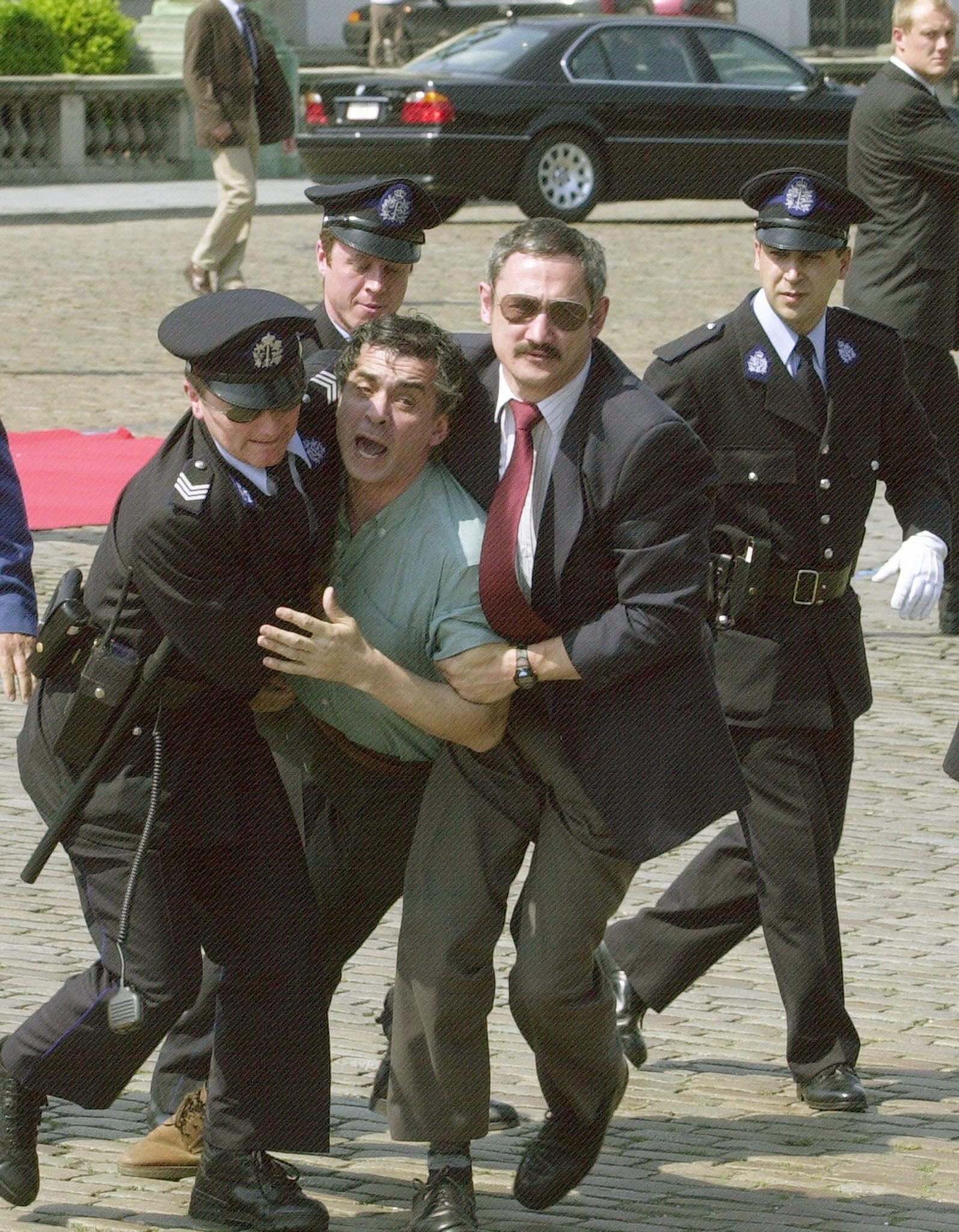He left the country. Not because he was kicked out, he guarantees, but because of his strained relationship with his family. “It was mainly a family conflict of a religious nature, influenced by my brother, who was a priest, who was a clergyman”, Krohn recalled. All the brothers supported their parents. “The land we came from in the south of Spain, a land with very strong divisions between Catholics and leftists. My family clearly shunned me.”
A period of wandering across Europe followed. “After Spain, I spent a few weeks in Holland, in the house of a Dutch Protestant preacher, who took me to Switzerland, near Aegon, where there were people who knew me”, he recalled. “I was at Aegon for a few days and that’s where I met my future wife.”
His Belgian wife proposed that he move to Belgium from the end of the 1980s, Krohn would later have a son (he is now 30 years old, but Krohn does not want to talk about him. , to protect him) and, after that, he got divorced.
In Belgium, he lived in several cities, including Antwerp and Ostend, before finally settling in Brussels. “My life here was difficult. My social and professional insertion was, as I thought, very difficult.
Thanks to his law degree, Crone briefly worked as a lawyer. “There was an incident related to my past in Fatima for which I was expelled from the Bar Association with a huge media scandal,” he explains without elaborating. According to the newspaper El PaísThe expulsion stemmed from the initiation of disciplinary proceedings against Krohn after he made “anti-Semitic comments” in a newspaper interview.
After that, he had a series of precarious jobs: he worked as an assistant at a bankrupt airline, did some sporadic translation work, worked as a farm laborer and as a bicycle mechanic. He obtained most of these jobs through social reintegration processes, but he complains that he was only offered “special, discriminatory contracts.” He doesn’t let go of the thesis that he continues to be persecuted because of his past: he never got the job benefits of other immigrants because he never joined a union, which he says led him to poverty.
Still, I wanted to keep reading. He completed a master’s degree at the Free University of Brussels and attempted a doctorate with a thesis on the Spanish writer Francisco Umbral. “I effectively wrote a thesis on him about his novels about the Spanish Civil War. They didn’t accept me in Belgium, for no good reason. The official reason was that it didn’t meet the university’s criteria. But the truth is, the underlying reason is the law of historical memory”, he explains. “One of the editors who evaluated me commented: ‘You don’t distance yourself enough from some of the characters of the Franco regime in the book.’
Then, in 2000, he again led a controversial moment. During Juan Carlos I’s visit to Brussels, Krohn repeated the gesture of 1982: he ran over the fences to the Spanish king: “You killed your brother, I didn’t kill the Pope!” This incident coincided with Pope John Paul II’s third trip to Portugal to reveal the third part of the Fatima Secret. “They created an image of me as an unruly, uncontrolled individual”, says Kron, who spent another month in prison, this time in Belgium, “under a very strict regime”.

▲ In May 2000, Juan Fernández Krone was detained in Brussels for jumping security barriers and protesting against King Juan Carlos, who was visiting Belgium.
Belgian/AFP via Getty Images
Today, he lives in a shelter run by the Brussels city council and is often fed A blog This A YouTube channelHe propagates his theories, for example, In criticism of Pope Francis. As for the fact that he has become homeless, he has an alternative (and more remote) explanation for the global housing crisis: “I wonder if it’s related to the housing crisis. As mentioned, or if it relates to my positions, on my weblog, on the war in Ukraine, I took a clear, unequivocal position in favor of Russia and Vladimir Putin. In a country like Belgium, where the political class is openly pro-Ukraine and anti-Russian, it is fair to ask whether my situation has anything to do with the problem…”
40 years after his fate was determined, one inevitable question remains: Did he really want to kill the Pope on that May 12, 1982?
“Here we touch on the delicate topic of intention,” Crone replied. “I always said, effectively, I wanted to kill. But today I don’t think so. That’s my childishness. I didn’t want to kill him, I wanted to finish it. star power. By that power of that Pope, new and unique in the history of the Church, all were venerated and incensed. Everyone, right and left.”
From his time at the Écône seminary, Juan Fernández Crone developed a deep hatred for John Paul II and all that the modern pope represented: the opening of the church to a contemporary world where Crone saw the dangers of communism. For the Spanish, the near-unanimous adoration of John Paul II was particularly shocking.

“Hardcore explorer. Extreme communicator. Professional writer. General music practitioner. Prone to fits of apathy.”
